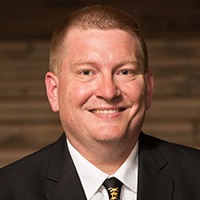Introducing the FCI Team: Embracing Change and Leading with Purpose
Change is a constant in education, and it is how we navigate it that defines our impact. At the Florida Charter Institute (FCI), merging with the Charter Support Unit (CSU) isn’t just about combining organizations—it’s about uniting our strengths, experiences, and visions to build something even greater.
Three Questions for Our Leaders
Meet Curtis Fuller
 At FCI, we believe that leadership is about connection, purpose, and the courage to make a difference. Each month, we’ll feature a member of our team, offering a glimpse into the passion and dedication that drives our work. As we move forward, let’s focus on the opportunities ahead and continue to lead with purpose and commitment. Here at FCI, we are not just navigating change—we’re driving it, together.
At FCI, we believe that leadership is about connection, purpose, and the courage to make a difference. Each month, we’ll feature a member of our team, offering a glimpse into the passion and dedication that drives our work. As we move forward, let’s focus on the opportunities ahead and continue to lead with purpose and commitment. Here at FCI, we are not just navigating change—we’re driving it, together.
In this installment, we are excited to feature Curtis Fuller, Chief Operating Officer of the Florida Charter Institute. Curtis brings a wealth of experience to FCI, having founded the Charter Support Unit in 2012. Since then, he has collaborated closely with the Department of Education, providing essential services to new schools across Florida. Curtis began his career as a teacher in Appleton, Wisconsin, where he helped open a charter school. He then became the principal of a high-performing charter school in Largo, Florida, growing the enrollment from 196 to over 720 students across two schools. He holds a bachelor’s degree with a dual major in Elementary and Special Education and a Master’s in Educational Leadership. Curtis joined the nonprofit charter support organization, Building Hope, in 2012, where he has continued to influence and support the charter school community in meaningful ways.
What motivates you most in your work with charter schools, and what keeps you passionate about this field?
Each student has unique needs, and we should be able to provide public school options that meet these needs. That’s the beauty of charter schools: they offer a wide variety of educational approaches to serve the diverse requirements of our students. Cookie-cutter models can’t meet the needs of every child, and I believe every student deserves a school where they can excel. Charter schools allow us to provide that tailored experience.
In your opinion, what is the most critical challenge facing charter schools today, and how can leaders effectively address it?
The increasing regulation on charter schools is something that has concerned me over the last several years. The original idea of charter schools was to offer flexibility in exchange for accountability, but this flexibility is slowly being eroded by laws and rules that increasingly include charter schools. This makes it more challenging for schools to focus on the unique needs of their students. As leaders, we need to advocate for policies that support the diversity of charter schools and their ability to serve students in innovative ways.
Can you share an experience or initiative from your career that you are particularly proud of, and what impact did it have on students or schools?
I’m particularly proud of the support system we’ve built around early-stage charter schools. By providing a range of resources and training, we’ve been able to help thousands of students receive an education tailored to their learning styles. Even the back-end services we offer, like budget tools and various calculators, save schools time and allow them to focus more on their students. The Charter Support Unit has touched over two-thirds of all charter schools in Florida, and I know we’ve made a significant impact.
